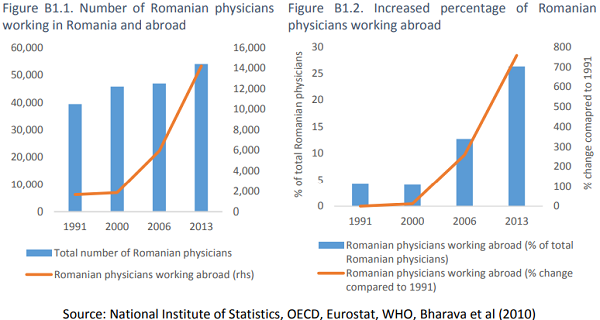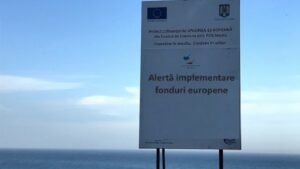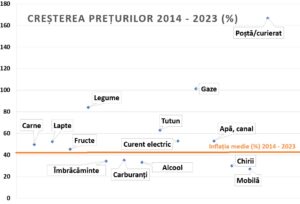Between three and five million Romanians work and live abroad.
The 2017 UN estimate, rated as optimistic by the World Bank’s Report on Diagnosis of Systemic Issues Caused by Migration, indicates 3.58 million people, or 18.2% of the Romanian population. It means that migration has a contribution of over 75% to the demographic decline registered by Romania.
The authors of the WB report are advancing a number of three million Romanians working abroad, which is equivalent to 23.3% of the Romanian working age population.
The positive effects of remittances and returning migrants are counterbalanced by the shortage caused in the Romanian labour market and an economic growth below the level possible without the huge flows of emigrants.
According to the European Commission, the highest shares of those who left appear in the highly qualified people categories (26.6%).
The situation has led to personnel deficits in several fields with a high added value – there is a high demand of IT programmers, physicians, electrical engineers, technicians, etc. on the domestic labour market.
An IMF study in 2016 showed that the emigration of the skilled labour force has slowed down Romania’s economic development: the annual GDP growth in real terms would have been about 10 percentage points higher in the absence of emigration.
Even with regard to remittances, the effects are ambivalent:
- have allowed investments
- have reduced inequalities both within rural and urban areas on one hand and between rural and urban areas on the other hand
- have reduced poverty
But:
- have affected the beneficiaries’ willingness to work
- have strongly affected children left in the country by their parents who went abroad (they are more vulnerable, more exposed to marginalization, and there are higher rates of absenteeism and school dropout in their category)
- have slowed down the income convergence – the gap between Romania and the EU in terms of income per capita indicator would have been reduced by about 6.5% in the absence of emigration
Categories whose migration should particularly concern the governors
The study also analyses two categories of highly skilled people with high emigration rates, which could cause great problems for Romania’s development in the medium and long-term.
- Physicians
One out of four doctors went abroad between 2000 – 2013, when the number of these professionals increased by 18% in the country, while the number of Romanian doctors from abroad climbed by over 650%:
 Romanians from poor, rural areas are especially affected, where the shortage of medical personnel has reached alarming levels.
Romanians from poor, rural areas are especially affected, where the shortage of medical personnel has reached alarming levels.
More than 50% of Romanian doctors who left are under the age of 40, and most of those who have applied for a certificate for the diploma recognition (for working abroad) are resident doctors.
Also, many young doctors choose other member states to complete their training.
- Young people studying abroad
The number of Romanian students abroad has more than doubled in 16 years – from 12,500 in 2000 to 33,400 in 2016.
Young people are also attracted by the quality of programs and the possibility to improve their communication skills in a foreign language, as well as the fact that they have more career opportunities after obtaining the bachelor degree, especially abroad.
This last aspect is particularly relevant, says the WB study, given that youth unemployment was over 20%, while the overall ratio (15-64 years) was only 5.9% in 2016.
The most impressive obstacles to their return to Romania after obtaining the bachelor degree are:
- the political environment
- the procedure for the recognition of diplomas obtained
The study shows that there is a lack of detailed data and analysis on emigration, therefore it is difficult to assess as accurately as possible the positive and negative effects of emigration, while all this information, based on which field policies can be developed, are crucial for Romania’s development on the long run.











